Yes, a basic industry is a good career path. The benefits of a career in basic industries include a good salary, good benefits, the opportunity to work in a growing economy, and the security of working in a solid industry that supports other industries with essential raw materials.
The opportunities in basic industries are huge. The U.S. Bureau Of Labor Statistics says the number of jobs in some sectors of basic industries will keep growing. Mining for example will grow 12% from 2021 to 2031. The agriculture sector will slightly grow to reach more than 2.2 million jobs. This means that there are many opportunities for people who want to pursue a career in this industry.
Basic Industries are the basic building blocks of any economy. These industries include manufacturing, construction, and agriculture.
The Basic Industries Career Path Guide
A career path – This is perhaps the most crucial and thorny question that the youth of today face. The number of choices that are available now makes this task even harder.
Our constant endeavor at Totempool is to provide some helpful information, and this is because we believe that knowledge is a powerful tool for making the right choices. So, we present our latest career choice article: Is basic industries a good career path?
Here is a summary of what we will talk about in basic industries career:
- What Are Basic Industries?
- What Companies Are In The Basic Industries Field?
- Types Of Basic Industries
- What Are The Characteristics Of Basic Industries?
- How Many Jobs Are Available In Basic Industries?
- What Do Basic Industries Jobs Pay?
- Education in Basic Industries
- What Is The Future of Basic Industries?
What Are Basic Industries?
Basic industries are those that provide raw materials to other industries to manufacture goods. Further, these industries execute the discovery, development, and processing of raw materials.
Examples of basic industries are iron and steel, metallurgical, wood, paper, milling, and chemicals. Furthermore, industries related to mining non-metallic minerals such as granite and marble also fall under this umbrella.
What Companies Are In The Basic Industries Field?
Basic industry companies are those that produce goods and services that are essential to the functioning of society. They include companies that produce food, clothing, automotive products, chemicals, and other products.
Some of the more well-known basic industry companies are Kraft Foods, ExxonMobil, and Johnson & Johnson. These companies are major players in their respective markets and provide jobs for millions of people around the world.
What Are The Types Of Basic Industries?
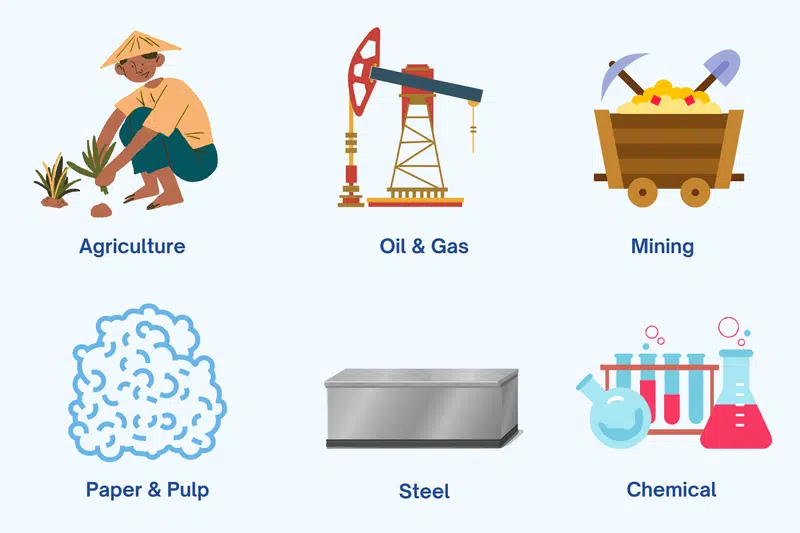
The first step in answering the question – Is basic industries a good career path is looking at the diverse industry options available. So let us explore some categories of basic industries below:
Agriculture Industry
Agriculture is the most essential of all the basic industries, and this is because of the number of people it affects directly and indirectly. Furthermore, agriculture is the dominant industry in underdeveloped and developing economies.
Also, agriculture is the primary source of all raw materials, and it is the primary driver of the nation’s food supply. Moreover, there is a close correlation between agriculture and the economic status of a country.
Finally, agricultural products account for a significant portion of a nation’s imports or exports.
Oil and Gas Industry
The oil and gas industry is one of the largest globally, and this industry contains three main segments: upstream, midstream, and downstream.
Upstream companies focus on discovering and producing oil or gas, and midstream firms focus on oil transportation, processing, and storage.
Finally, downstream businesses constitute refineries that remove impurities. Subsequently, this oil is converted into products for general use, such as gasoline.
Mining Industry
Minerals are an integral part of major industries, and hence mining is an important activity carried out all over the world.
There are two major project phases in the mining industry. The first is the exploration and feasibility stage, where mineral anomalies are located and sampled.
Finally, there is the construction and planning stage. Permits are obtained, and mine plans are refined at this stage.
The reserves of ore and other resources are the main assets in this industry.
Paper and Pulp Industry
Contrary to popular belief, the paper and pulp industry is growing and continues to thrive. Several firms cater to different segments such as packaging, tissues, and hygiene products, and pulp is even used for textile applications.
Additionally, this industry also produces graphic papers that are used in newsprint.
Steel Industry
Steel has played a pivotal part in the progress of the world. The role of this material in the construction of vehicles, bridges, ports, and so on is evident.
Undoubtedly, it is a crucial basic industry. Steel is an alloy of iron and carbon, and steel production is a highly specialized process carried out in steel mills.
Various projects primarily make use of steel for construction. These include pipelines, railroad rails, and beams.
Chemical Industry
This industry is responsible for the transformation of raw materials into gases or chemical solutions. These chemicals are utilized in other sectors.
The products from chemical industries can be classified into basic chemicals, specialty chemicals, and consumer chemicals.
Additionally, basic chemicals consist of other subcategories such as petrochemicals, polymers, and inorganics.
Specialty chemicals: This category of chemicals includes dyes, paints, and chemicals used in crop protection, such as pesticides. The production of these chemicals involves a high degree of research and development, and household paints and printer ink are some examples of specialty chemicals.
Consumer Chemicals: These are chemicals of everyday use. So these consumer chemicals are readily available to the public. Detergents, soaps, and bleaching powder are a few examples of consumer chemicals.
What Are The Characteristics Of Basic Industries?
There are a few common characteristics across all the basic industries. Let us go through them below.
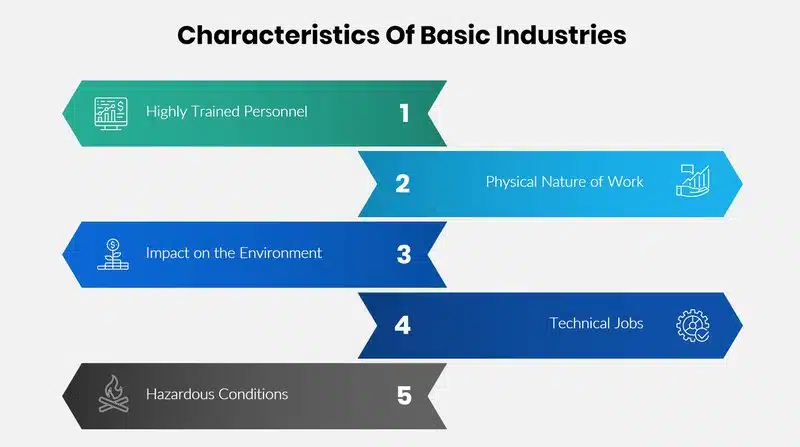
Highly Trained Personnel
Workers in basic industries are often exposed to high-risk conditions. Therefore, firms must employ only highly qualified and trained people to improve efficiency and reduce the chances of mishaps.
Physical Nature of Work
Jobs in basic industries require a person to be out and about, and any role would comprise a lot of running around, standing, lifting weights, bending, or stretching oneself. They are not sedentary. Hence, people looking for desk jobs should give basic industries a miss.
Impact on the Environment
Basic industries generate a lot of byproducts that tend to harm the environment. Besides polluting the land, water, or air, these industries are hazardous for the workers and the people residing near these establishments.
Technical Jobs
The tasks in different categories in a basic industry may be technical in nature. For instance, you may find a number of trades in the mining or construction industry, such as matters such as materials scientists, stone drillers, oil well drillers, and many more industrial jobs.
Work involved in specialized industries can be considerably more physically demanding and time-consuming compared to other jobs. They entail a greater degree of physical labor, they require specialized skills and energy.
Hazardous Conditions
You’re exposed to hazards in some of the basic industry jobs because of the work environment. For instance, the mining industry has much more risks and hazards than other industries.

The hazards at risk for the mining can include fire (including by certain ores), dust (including poisoning from certain minerals), high temperature and humidity, noise and vibration, toxic gases, and various other potential risks.
How Many Jobs Are Available In Basic Industries?
According to the bureau of labor statistics, there were 22,262.90 jobs in basic industries (including mining, construction, manufacturing, agriculture, forestry, fishing, and hunting), 12.4% more than in 2010, and it’s expected to grow 2.7% by 2030.
As one can imagine, there are multiple options for those wishing to pursue a career in basic industries. This is mainly a result of the number of industries classified as basic industries. We shall examine these options in some detail here.
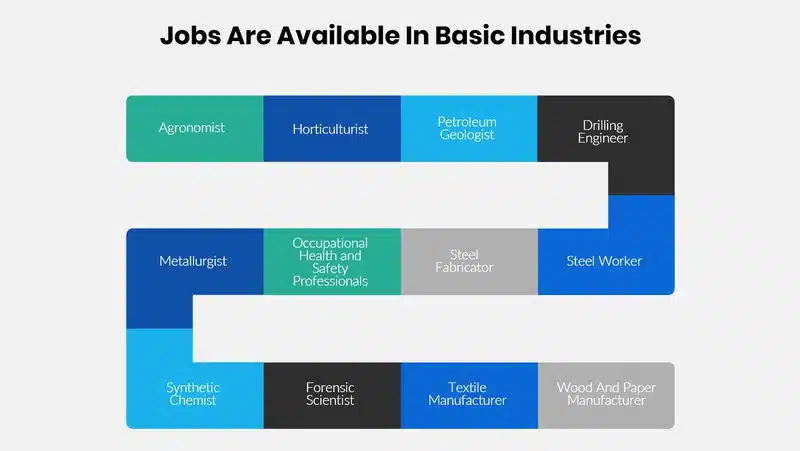
Agronomist
Agronomists work with people who grow crops on a commercial scale. They are professionals who provide inputs on soil management, fertilizers, nutrients, irrigation, or seeds.
Moreover, they use their market analysis and management skills to provide the necessary support and leadership. Agronomists make more than $60,000 on average every year.

Horticulturist
A horticulturist has expertise in cultivating plants, vegetables, fruits, flowers, and ornamental trees. He also specializes in landscape design to create parks.
In addition to the above, a horticulturist also increases the yield and enhances the taste of plants. He typically makes around $40,000 annually.
Petroleum Geologist
Petroleum geologists study the earth’s surface to locate oil and gas deposits. They use geological indicators to inform firms about the sites that have to be drilled.
Additionally, petroleum geologists also recommend the tools that have to be used. This is because the geological composition varies from one area to another. Surface and subsurface data is gathered with highly specialized equipment.
Petroleum geologists typically require a bachelor’s degree in geosciences. They make $100,000 per year on average.
Drilling Engineer
They are responsible for the operation and execution of natural gas and oil. Drilling engineers also oversee the rig staff.
Moreover, they assess and maintain the oil wells along with the financial aspects of the operation. They make around $100,000 a year.
Metallurgist
A metallurgist works in the processing sites of mines. He also brings with him knowledge of extraction, heating, and the properties of various metals, which is in addition to information on topics like casting and alloying. A metallurgist makes upwards of $100,000 a year.
Occupational Health and Safety Professionals
A health and safety officer is responsible for the investigation and documentation of accidents, and he also evaluates and executes the safety protocols.
Also, he drives the overall safety strategy and understands the risks involved in different processes. He makes over $77,000 a year on average.
Steel Fabricator
A steel fabricator takes the basic steel sections and converts them into various segments and shapes. This role requires the knowledge of specialized tools such as Computer Numerical Control (CNC). In general, this is a highly advanced job. They make over $40,000 a year.
Steel Worker
Steelworkers build and install steel components. They create structural elements of buildings such as frames and columns. In addition to the above, they identify structural concerns and report them to their supervisors.
Steelworkers also perform repairs to maintain steel structures and components. To pursue a career as a steelworker, one needs to have a lot of stamina as it is a physically demanding job. They make more than $50,000 a year on average.
Synthetic Chemist
A synthetic chemist works on the development of new and valuable compounds. These compounds are typically for a specific purpose.
Synthetic chemists develop chemicals that are used across industries such as healthcare, agriculture, and manufacturing. They earn more than $80,000 a year on average.
Forensic Scientist
Forensic scientists work across a range of environments. Their usual work involves collecting and analyzing fingerprints and other evidence from crime scenes. They also collaborate on research projects. Forensic scientists earn $60,000 annually.
These career choices are suitable for people who do not like to sit at a desk all day. The breadth and depth of the jobs are proof that the answer to ‘Is basic industries a good career path?’ is yes.
Textile Manufacturer
Manufacturers often produce clothing in different stages, requiring varying degrees of education. Some may not need a college education or a high school diploma, while others even need a degree in this field. For example, some businesses might require a diploma or a degree in apparel or textiles, or graphic design in order to become a textile designer. For most positions in the apparel and textiles industry, however, you typically don’t need a college education.
Wood And Paper Manufacturer
The process of producing paper begins with processing the raw wood with cellulose or fibers, and refining them until the paper is formed. Paper and wood production involves getting the career choice article: best wood for the papers, mostly softwood coniferous trees. Therefore, pulp and paper are the main raw materials for this type of job.
To work in the pulp and paper industry, it’s essential to have a high school diploma. The professional should also be aware that certain jobs in the sector involve basic tasks that are technical and specific to the job, such as how to run woodwork machines.
Is Basic Industries A Good Career Path: Characteristics Of The Employees

Lastly, it is time to scrutinize the qualities of ideal employees who work in basic industries.
Adaptability
Global macroeconomic factors have the most effect on basic industries. Therefore people need to be highly flexible while working in basic industries, and they also need to equip themselves with the changes in technology.
Productivity
Firms seek employees who are excellent at time management. People should engage in tasks that add value to the organization, which is a priceless quality regardless of the industry.
Attitude
A positive approach helps deal with the ups and downs in basic industries. Workers should constantly upgrade their skills while on the job, brightening their prospects in the long run.
Teamwork
Collaborating with people has always been an essential skill to thrive in the workplace. One should learn to coordinate and work with multi-disciplinary teams, and this helps everyone involved as they are aware of the bigger picture and the different moving parts.
What Do Basic Industries Jobs Pay?
In most cases, the salary for a basic industry career will depend on the experience and skills of the individual. However, some entry-level positions may offer lower salaries. Salaries in this field can be around $50,000 and it can be much more depending on the job position and experience.
Basic Industries include jobs in agriculture, oil and gas, mining, paper and pulp, steel, and chemical industries. The average salaries in each sector are as follows.
The agriculture average salaries are between $29.6K and $42.7K on average.
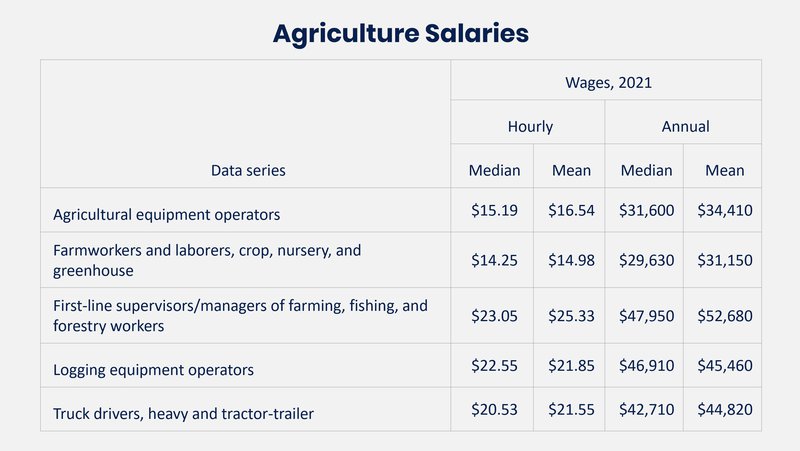
The oil and gas extraction average salaries are between $46K and $158K on average.
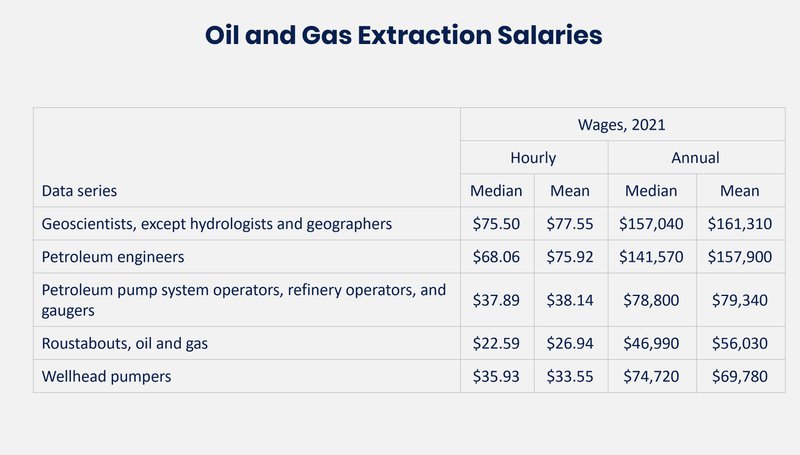
The mining industry’s average salaries are between $47K and $83K.
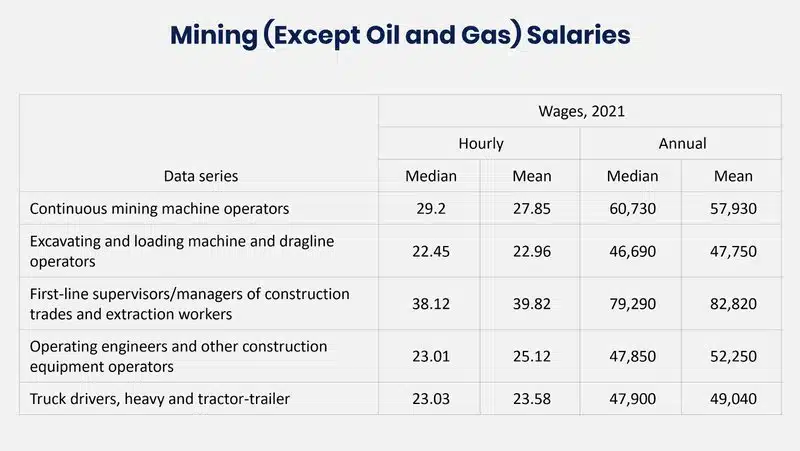
The paper manufacturing industry’s average salaries are between $42.7K and $120K.
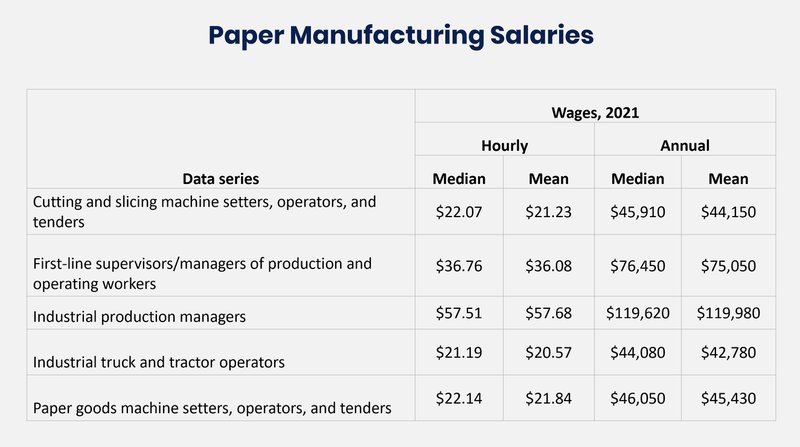
The primary metal manufacturing average salaries are between $37.5K and $68.7K.
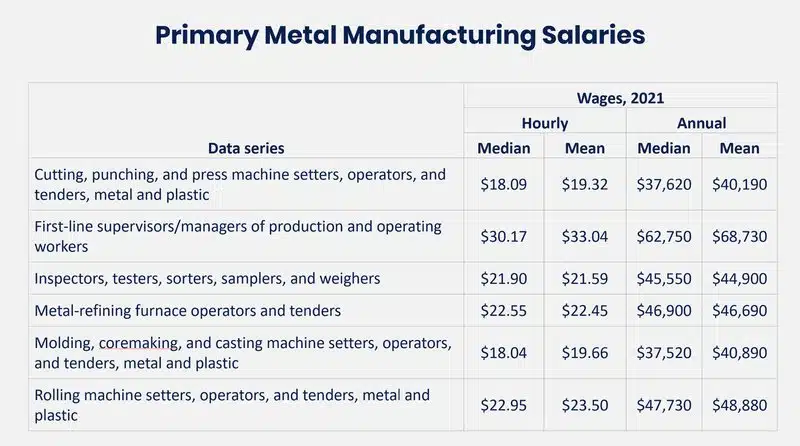
The chemical manufacturing average salaries are between $38.5K and $84K.
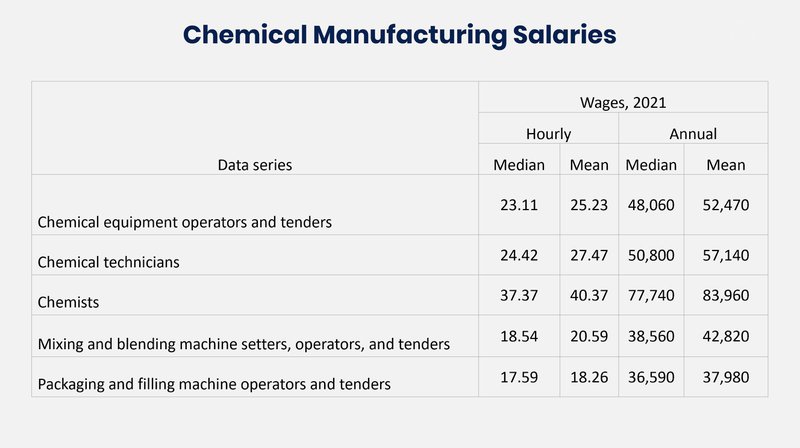
Education in Basic Industries
Basic industry careers often require a degree in engineering or technical fields. However, there are many jobs that do not require a degree and are open to those without one. It is important to research the specific industry you are interested in before applying for a job.
The Bureau of Labor Statistics (BLS) projects that the basic industries sector will grow by about 5 percent between 2016 and 2026, which should provide plenty of opportunities for those looking to enter the field.
With high-paying jobs available with minimal education requirements across multiple fields, now is a great time to get started. Keep your eyes open for job postings, and be prepared to interview for positions.
What Is The Future of Basic Industries?
If you’re planning to develop your career in basic industries, it’s important to consider its future. The government is hardening some regulations. Industries that use a lot of resources, like mining and logging, are likely to go away in the near future. Governments are starting to highlight the importance of sustainability and are trying to make sure that all industries are environmentally friendly.
That doesn’t mean that all industries will disappear. Basic industries, like food production and manufacturing, are likely to continue to exist for a while because they don’t use a lot of resources. They also tend to be more adaptable than other industries, which means they can change as the economy changes.
There are many different types of basic industries that will continue to thrive in the future. Agriculture is an important sector, as is manufacturing. It’s important to remember that not all industries need to be big and commercialized in order to be successful. There are many small businesses that produce quality products and services without sacrificing the environment or the workers’ safety.
In general, it’s safe to say that there will be more innovation in the basic industries in the future. We will see new and improved products and processes, which means that companies who invest in these sectors will be able to stay ahead of their competition.
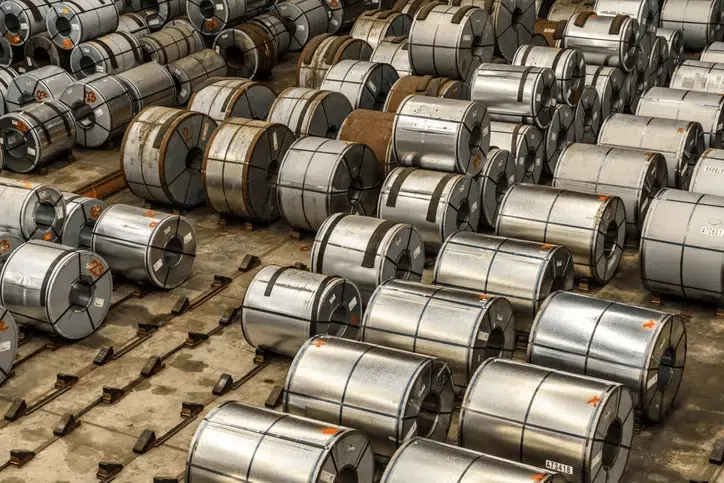
Want To Learn About Other Career Paths?
If you want to know more about other career paths, check out this list on Totempool. You will be able to make your choices with solid information before moving to a particular industry:
- Broadcasting
- Business services
- Capital goods
- Commercial banking
- Consumer Services
- Energy
- Healthcare
- Industrial Machinery
- Life Insurance
- Major Banks
- Major Pharmaceuticals
- Metal Fabrication
- Non-durable consumer goods
- Oil and gas
- Packaged Foods
- Precious Metals
- Real State Investment Trusts
- Transportation
If you are indecisive about the area, you want to work. Here we list a few functional career paths:
As more industries are published on the website, we will keep updating the list for you. If you want to learn how to choose your career path, check out this article.

Ranu Kumari is a Professional Writer and a Marketing enthusiast who currently runs her own Marketing Consultancy, LatitudeBOX. She has written promotional articles for multiple brands and has published her work in Scopus indexed journals. She is passionate about expressing her thoughts and ideas to connect with her readers in a voice that they understand.
